Double Century Recorder – Chris Cowie Interview
After three decades of music production Chris Cowie has a unique perspective on studio use, from his ‘lucky’ initial hardware set-up to using the best gear around. And he has a lot of advice too. MusicTech meets the man with a double century of releases… Chris Cowie has released hundreds of recordings under almost as […]
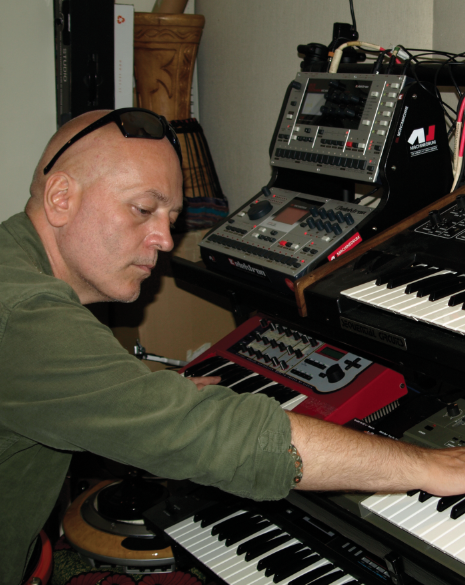
After three decades of music production Chris Cowie has a unique perspective on studio use, from his ‘lucky’ initial hardware set-up to using the best gear around. And he has a lot of advice too. MusicTech meets the man with a double century of releases…
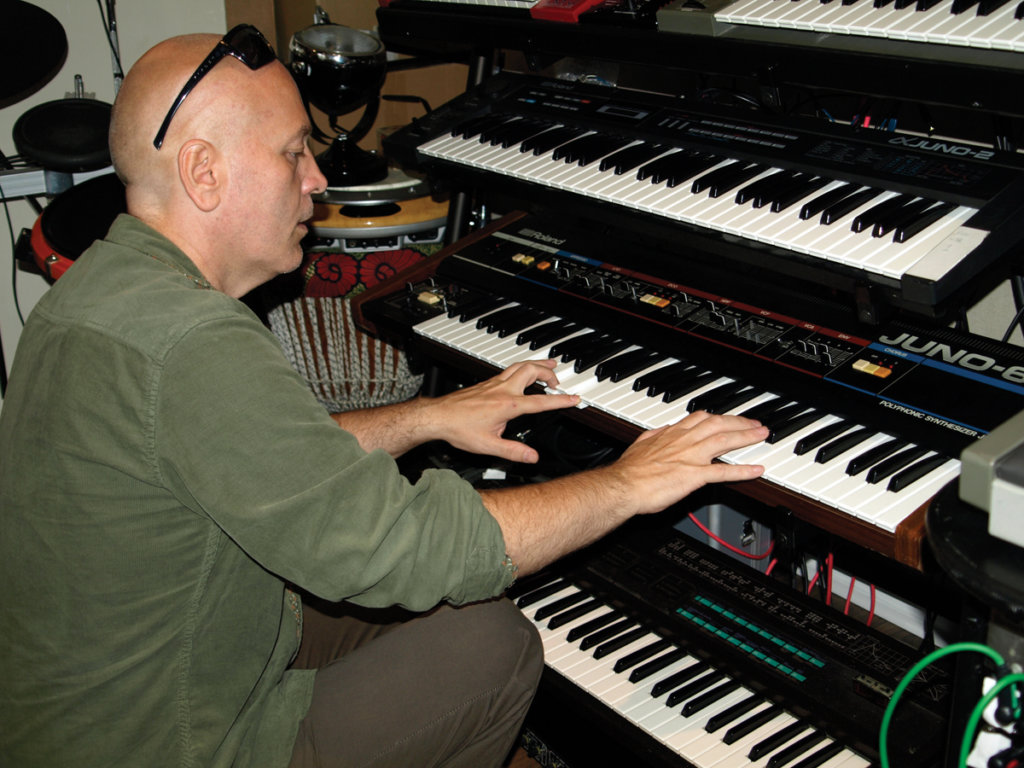
Chris Cowie has released hundreds of recordings under almost as many different aliases over the last three decades. He saw most success as X-Cabs and Vegas Soul, not to mention achieving a number 3 track with his remix of ATB’s Don’t Stop. He now divides his time between a couple of record labels (Bellboy and Hook Recordings) and Niche Audio which produces ‘super preset’ packs for Ableton’s Push and NI’s Maschine.
With three decades at the cutting edge of music technology and production he has been part of an ever-changing landscape, but also has a valuable insight into the world of recording which he is keen to share…
MusicTech: Tell us about your early success.
Chris Cowie: I started releasing dance music way back in 1991 and, since then, have released over 200 separate releases using around 26 aliases on many labels. In 1992 I launched a couple of labels, Hook Recordings and Bellboy Records, which both went on to become very successful and quite influential in their day. The labels became so successful that I could literally turn on Radio 1 and be guaranteed to hear one of my songs or the labels on any day – weekends were guaranteed. Even the great John Peel hammered stuff from the Bellboy label.
MT: Having released so many tracks on so many labels, do you have any advice for a successful production today?
CC: I’m often impressed by the production on lots of the records I hear, but it will always be accompanied by a great tune. The tune has to be there first, then I will listen to the production. No amount of mixing and effect wizardry can save a song from being bad. Get the tune right and the mixing should fall into place easily. The only mistake I hear is that too many songs out there sound exactly the same.

When people would ask me how I got my records to sound like they do, particularly the Vegas Soul and X Cabs stuff, I was never really sure what they meant. All I did was make tunes, release records and didn’t give a second thought about the recording and mixing process I went through. I assumed everyone was the same. Years later I now know what they were asking about was the essence. It wasn’t that my mixing was good – in fact in all honesty a lot of my records sound very average in terms of mix. But what they do have is soul and an underlying theme of more going on than there really is.
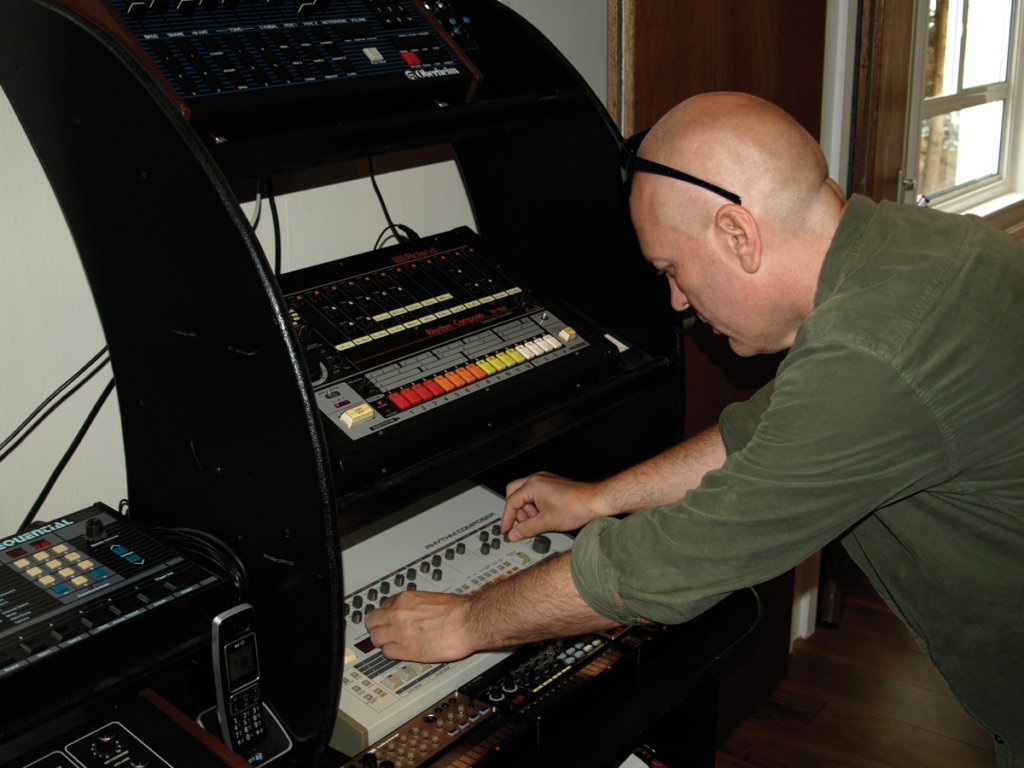
I can listen back to some stuff and be impressed how I worked one sound all the way through a track with a simple filter and EQ from the mixer, yet the track is never boring. Combine that with the live console mix and the numerous subtle changes to the mix’s elements during the five or six minutes of the song, and something undefinable but really good happens to the mix. I think that’s what people were hearing – a subtle but constant movement as the track progresses.
Perhaps also that I would always EQ heavily maybe contributed. A trick I would often use would be to use the mixer’s EQ to heavily boost and then sweep the mid range frequency on a sound creating a cool filter in real time as I was recording the master – kind of like a regular filter but a bit different and kind of cool.
MT: You’ve released so many tracks: what do you think helped with the creative flow in terms of your ethic and gear?
CC: For me it was all about being in the studio and simply letting the ideas flow. During my extremely prolific years I wrote everything from the heart and I’m happy to say that a good chunk of my early material has aged really well. I think that’s down to having a sound of my own but also importantly I felt what I was writing. Nothing was contrived really, so I guess I’m all about the idea of a tune first and then the mixing comes later.
In terms of the gear, I’m still asked occasionally how I managed to get my stuff from the 90s and 2000s to sound the way it does. It came down to four pieces of gear I used on hundreds of tunes almost exclusively: the Roland S-750 sampler, Ensoniq DP4, Roland TR-909 and a Mackie mixer. That combination of gear worked brilliantly with each piece complementing one another as if by magic.
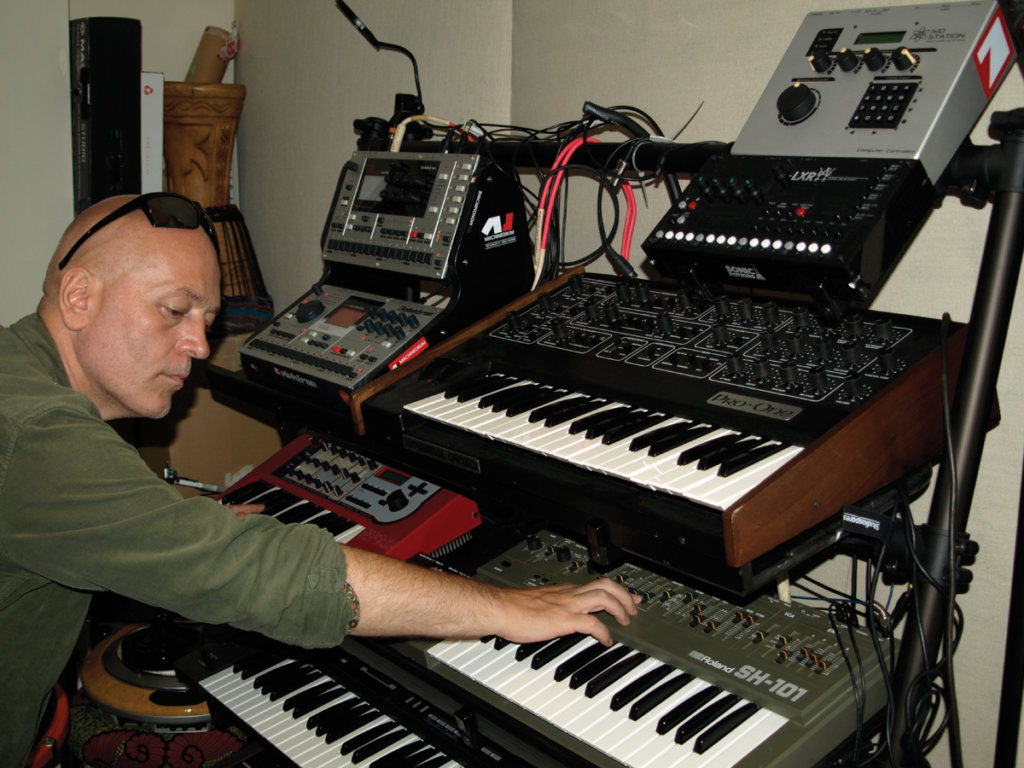
Taking any small insignificant sound from the sampler, adding a filter assigned to the pitch wheel and the sound EQ’ed and sent through the DP4 could sound amazing. Multiply that by many sound sources coming from the sampler, the DP4, and even the Mackie’s basic EQ helped stamp identity on my sound. It wasn’t magic, it was kind of a fluke and, in all honesty, I have never found such a symbiotic relationship between gear since then. But I knew that gear inside out like no other. I felt
I could do anything I wanted with that simple set up. I even remixed ATB and it was the mix from that gear went to number 3 in the national charts. There was also another piece of gear I used in almost every release which was a Yamaha TX81z and a Deep Bass Nine, but the core of every tune was the initial four.
MT: So having had such a successful and relatively simple hardware set-up, how do you view the current in-the-box philosophy of music production?
CC: For getting in to music making there has never been a better time really – especially when you have the right sounds! Mixes that wouldn’t have been possible 15 to 20 years ago without a lot of money and a large studio are now possible. That has to be a good thing, right? The only bad thing is saturation. There are a million producers out there and tons of them sound really good, but they’re all fighting for a tiny space and only a small amount will receive the attention they deserve. For the consumer it can be very difficult to find them…
It’s worked brilliantly in the sense that you and I can make a record literally anywhere, but maybe it’s not as good from a vibe point of view.
There’s something about those big boxes with rows of faders adding to the vibe of the music making process from a physical aspect. But products like the Maschine controller and Ableton’s Push do help a lot with enabling you to feel connected with the gear. Add one of our sample packs and the set up is oozing with vibe!
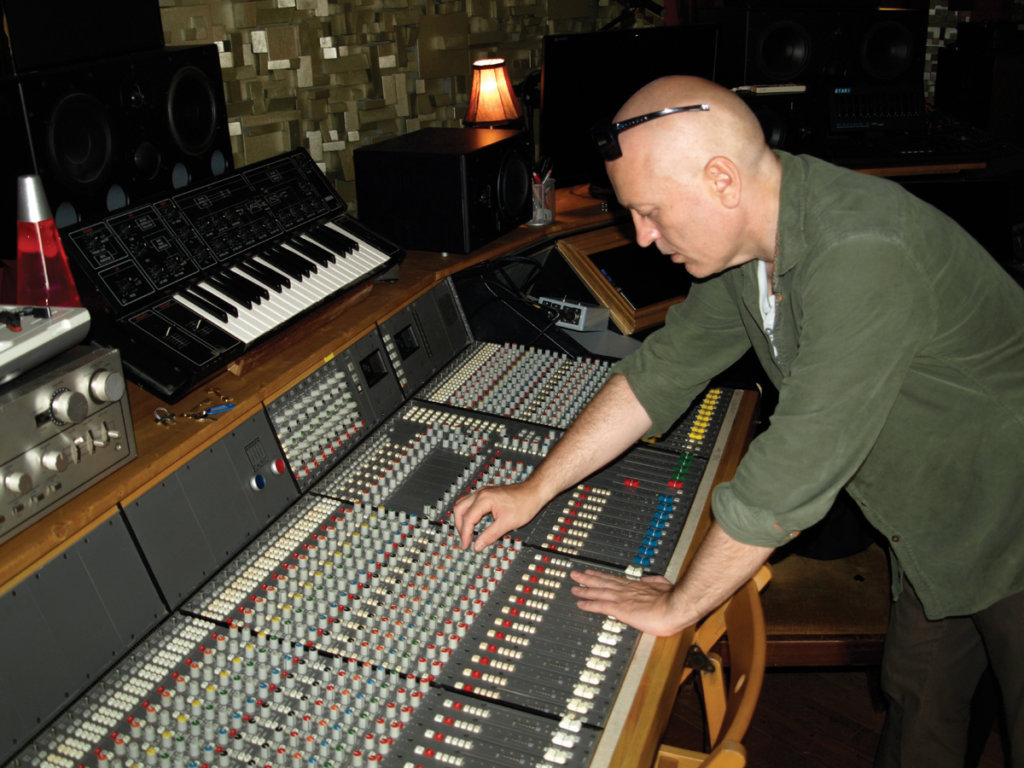
The Gear
Chris Cowie: I’m right next to a number of extremely well-equipped studios. There’s so much gear here that I can use anything from a real TR-909 to an SSL console. But in reality the majority of what I do is created in my personal set up which consists of an iMac and a few controllers. I’ve been around the block a number of times creating in-the-box systems, hybrid, and full on hardware set ups. I liked them all but recently I decided to go fully in-the-box because, ultimately, I feel it has to be an all-or-nothing approach.
I would need a seriously expensive console and lots of expensive hardware processors to compete with the mixes I can get in-the-box. I still have hardware but tend to only use it to create samples for the Niche Audio Maschine and Ableton packs. I use any DAW from Cubase and Ableton to Pro Tools and Maschine which I would categorise as much more than a drum machine.
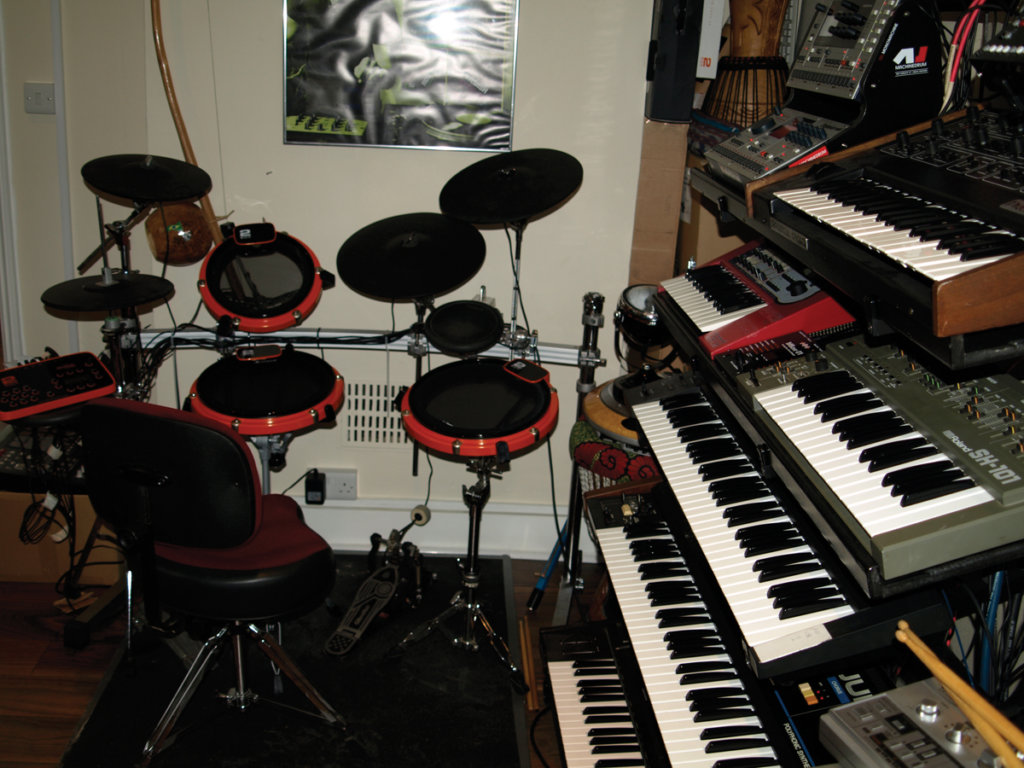
MT: Any favourite sound generating studio tools?
CC: I’ve always been a samplist. Since the start of the VST synth thing I went along with endlessly tweaking virtual or real synths, never really getting anywhere because I’m not a synth type of bloke. I’ve always been someone who takes a sample of anything and turns it into something different from the original. I’m not talking about phrases, I mean a sound snippet of sound like a chord or bass sample.
When it comes to samplers in general I don’t feel they have received anywhere near enough credit for their contribution to electronic dance music. I’m in no doubt that if it weren’t for the sampler we would never have seen the dance scene explode like it did in the 90s. I do feel history has been rewritten by the analogue synth community, whereas the reality back then was that very few of us had any analogue gear but we all had a sampler. Samplers are still my favourite instrument.
MT: And outboard – what plug-ins or outboard do you find most creative and most useful?
CC: I obviously like a lot of hardware, but in terms of plug-ins I’m currently really loving Native Instruments Supercharger GT compressor. I’m bored with characterless VST compressors designed to be as colourless as possible adding little to the table for electronic music producers aside from level control which we don’t often need. The GT really adds character to sounds without ever sounding nasty and it can also sound really good as a buss compressor or mix compressor. I really like Maschine as well for its built-in effects. At first I thought they were terrible, but that was character.
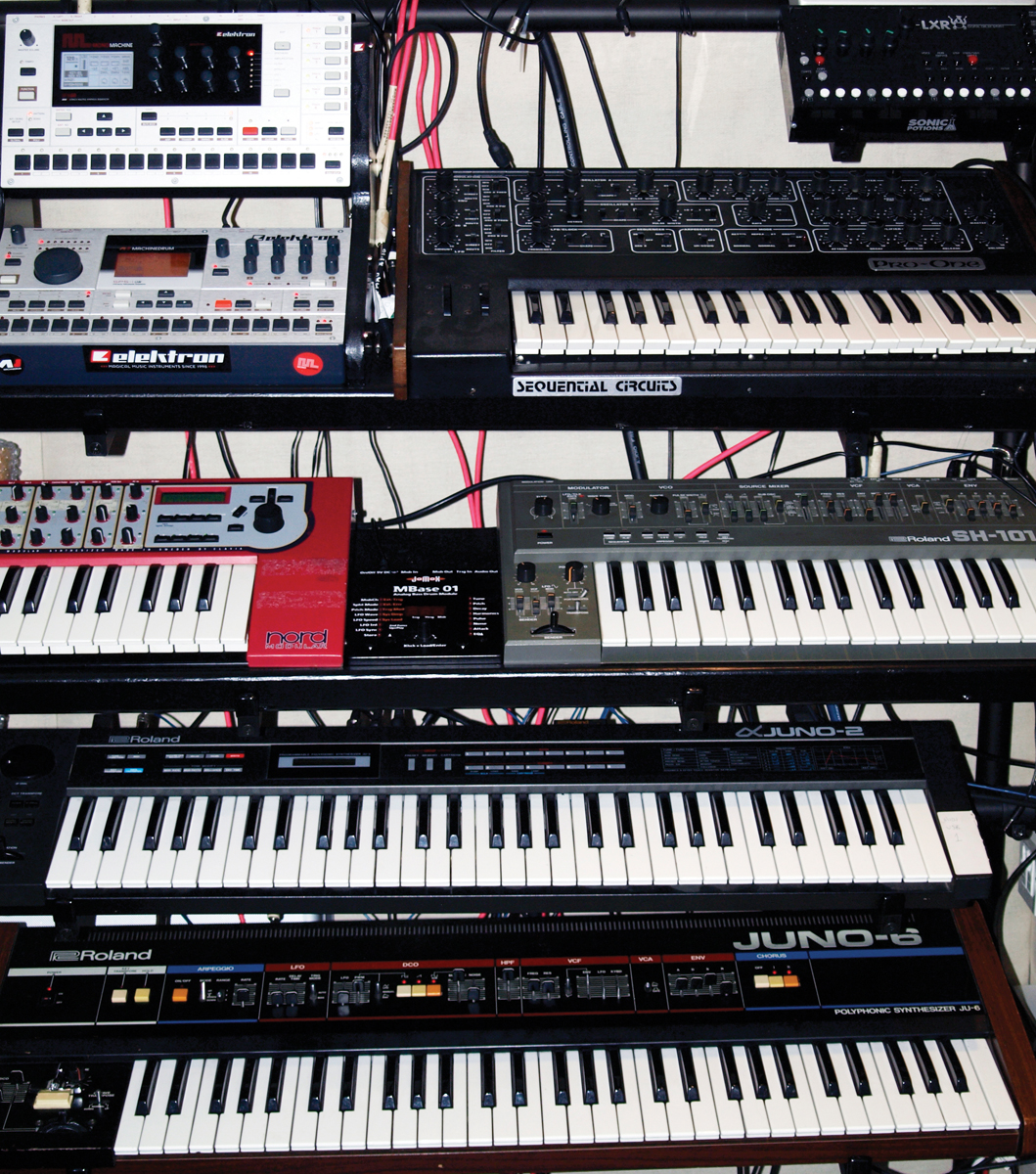
Once I started using them I like how they become part of the sound rather than sitting on top of the sound. In fact its Beat Delay is the only delay that has ever come close to the sound of delay I used to get from an Ensoniq DP4. I also really like Slate Digital’s console emulation plug-ins as well as their buss compressors.
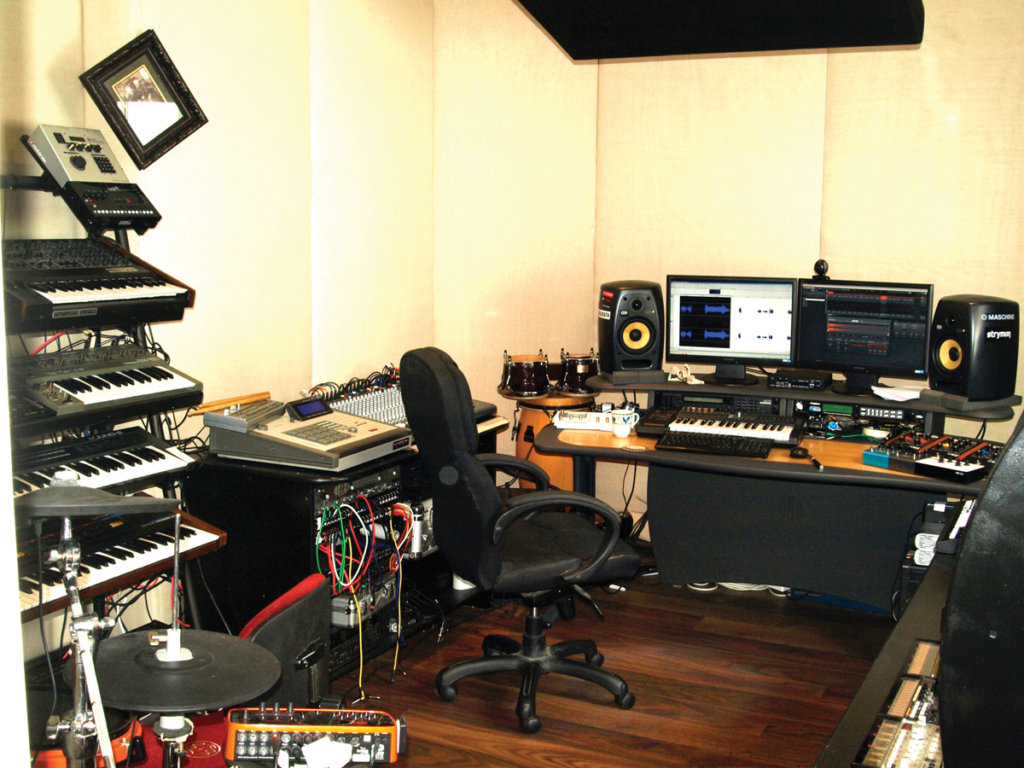
MT: What would you like to see developed in terms of studio technology?
CC: I would like software developers to consider that their users have become used to a certain workflow. Quite often they update their software and seem to randomly change how some operations work. This can be incredibly annoying especially if it’s a workflow feature you constantly use which became second nature. It takes a very long time to become a Jedi master with your software, and what may seem like small insignificant change can turn a Jedi Master in to a fumbling idiot.
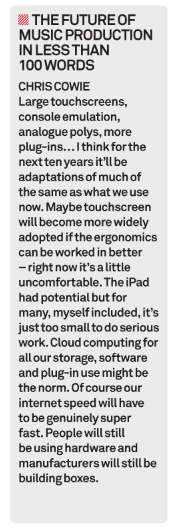
MT: Okay then, talking of which, tell us about Niche Audio…
CC: Niche Audio exists for music producers worldwide by supplying authentic inspirational kits and patterns from top producers in a range of key genres. We had an idea to launch a label to create high quality packs specifically for Ableton’s Live and Native Instruments’ Maschine in order to bring the most out of the supplied sounds and offer maximum flexibility to the user in order for them to stamp their own identity on their music faster than ever before. We came up with the concept of loading up a kit or preset that are much more than some dry, untreated, or unrelated samples spread out across the pads. We like to think of them as ‘super presets’.
They’re designed to inspire the user immediately with samples and kits mixed for a specific genre. We’re concentrating (for now) on this genre specific range – there are a lot of genres and sub genres so it will take time to get through them. We also have plans for instrument specific packs – for example, a pack made up of Indian percussion or analogue synth selections.
Advice and Top Tips To Avoiding Puppy Videos
MusicTech: What advice have you picked up from working in the industry that you can pass on?
Chris Cowie: When you get your moment grab every opportunity you can during that time. But don’t be an arse about it. Have some humility. Be loyal to those who helped you on the way. When you’re up there put something back into the scene.
MT: What would you say to anyone entering the world of music production with the view to making a living from it?
CC: You should know deep down if your music brings something to the table. If you feel it does and have the talent and determination to succeed then go for it. When I started it was a much simpler system. You made a tune, got some records pressed, sold them and made some money. Today it’s much more difficult to make money and this goes back to the self promoting thing again which is a must to survive. If you want to make a living from being a recording artist only, it won’t be possible unless you have mainstream success.
These days you need to also be a DJ/live act. So if you’re going for mainstream success focus on the songs: work on that side relentlessly. Once you feel your songs are there then I would strongly suggest approaching some decent labels. If your music is good you won’t be short of offers. If you’re more underground, you’ll have to seriously consider also being a DJ or playing live if you want to earn a living.
MT: And any advice on working in the studio?
CC: Try to work without an internet connection. It’s just much too distracting for those of us with little self control. I mean, one minute I’m working on a bass sound, I think of something and before I know it, I’ve spent the entire day looking at puppy videos on YouTube.
MT: Do you have any more plans for making music of your own?
CC: I’ve recorded and mixed a new album set for release around February 2015. It’s quite a departure for me in that it’s a full vocal album. The inspiration for it is a kind of homage to the music I grew up with. I was always attracted to those slightly quirky underground pop tunes that sneaked into the charts for a week and dropped out because they weren’t cheesy enough to stay there.
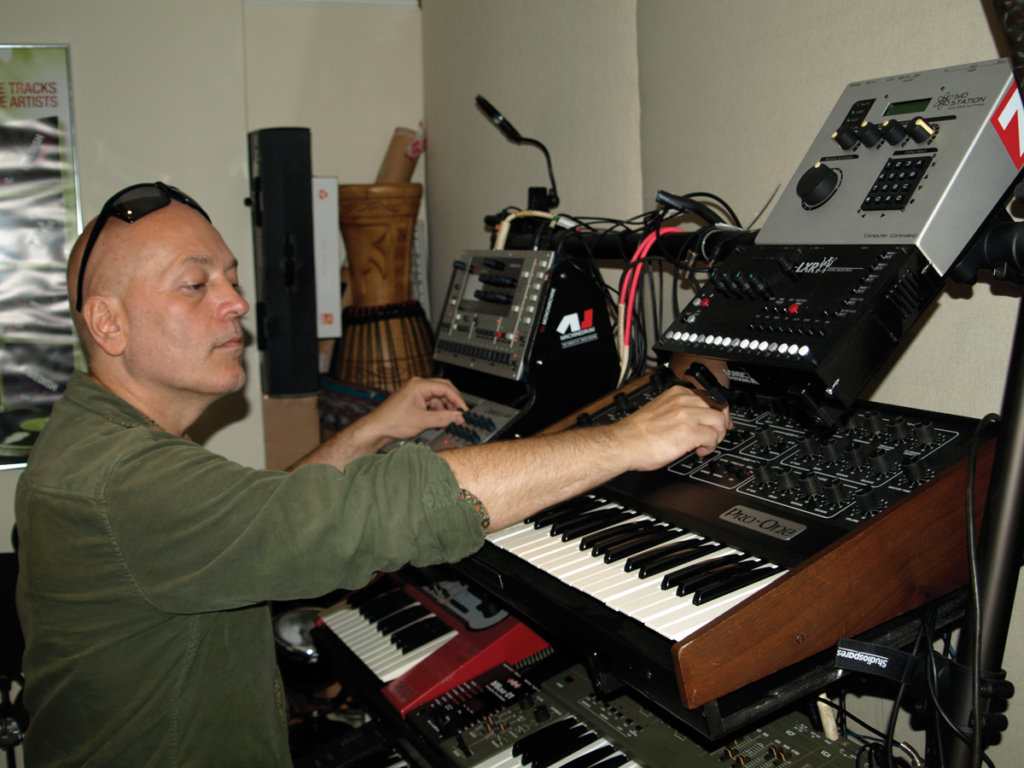
The Human League’s The Lebanon or Killing Joke’s Love Like Blood are good examples. So the album’s essence is influenced by songs I grew up with and probably formed my musical taste which is dark, with some melody – music to make you move as well as think. I teamed up with a very talented singer/songwriter from Detroit called Rachel Skotarczyk.
MT: How would a track typically start, structure-wise, and then progress?
CC: Generally always with some kind of bass line and drums, or chord progression – that’s how I can set the mood of the track, and once I have that I’m better able to find the type of sound to suit the mood. I used to arrange a lot of my releases in real time using the console’s faders and mutes to punch things in and out as I recorded the master to a stereo recorder.
I always thought technology would allow me to do that easily, but two decades later I’ve still never found an acceptable solution to do that effectively. Creating live arrangement/mixes was a brilliant way to work. You do your arrangement and basically create your song/record instantly as you feel it and that definitely transcends to the listener, even if the mix is very subtle. These days though, I plod along arranging on the timeline.
MT: What have you got planned for the next couple of years?
CC: I plan to help build up Niche so that it becomes known for quality and authenticity. In between that I will write and release stuff but only in album format. I’m done with releasing individual singles these days. I’ve even toyed with the idea of playing live again but nothing concrete there yet.
More info from www.loopmasters.com